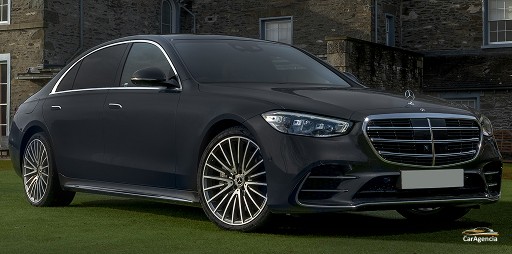 Kiran C
Kiran C
Mercedes-Benz and BMW have been rivals in the luxury car market for nearly a century; it appears that the two German carmakers might be prepared to put that rivalry aside for mutual benefit. Reports from recent months indicate that Mercedes is in late-stage discussions to incorporate BMW's turbocharged 2.0L four-cylinder engines into a number of their models.
If these partnership discussions are successful it would be a mega-market shift for two brands that have been highly competitive rivals since the 1920s. In Autocar, a source indicated that the discussions have made it to reasonable terms, ratified through Mercedes sources that an announcement about the deal could be announced before the day 25 of the year 2025.
Both manufacturers declined to comment when approached, however industry sources indicate that this deal is a financial 'no-brainer' for Mercedes and provides increased production volume for BMW.
The revolutionary aspect and centerpiece of the deal would be BMW's B48 turbocharged 2.0L four-cylinder design. The B48 engine architecture is in most automobiles produced by BMW and Mini, including its flagship 3-Series and the X3 SUV. For Mercedes, this engine provides many opportunities:
Emissions - Meeting emissions standards is at the forefront of reliability and acceptance to consumers. The B48 will fulfill Euro 7 requirement coming in the near future for Mercedes while being compliant and avoiding a lot of unnecessary and costly engineering costs to comply.
Plug-In Requirements - The engine possesses important engineering aspects required to make plug-in engines. Mercedes needs to have a stronger plug-in hybrid pathway, and while it has taken the time and effort to launch a new 1.5L 4-cylinder engine in association with a CLA-class hybrid, it apparently does not have the engineering aspects required to collaborate with traditional plug-in hybrid or range-extender
Cost Benefits: Mercedes will benefit from the existing BMW technology and their production capabilities as opposed to engineering engines from scratch.
It looks like the arrangement covers a much wider audience of Mercedes vehicles. The smaller models like the CLA-class sedan and GLA-class SUV are most likely, and the compact SUV Glb-class is potentially also included.
However, the larger vehicles could ultimately apply. There are reports suggesting that even the E-class sedan and GLC-class SUV can be fitted with BMW power plants, as well as the ALL NEW "baby G-Wagon" SUV from Mercedes. Broad applications suggest how serious Mercedes is treating this undertaking moving forward.
The initial assembly will most likely happen at the BMW Steyr factory in Austria, but the partners may, likely be looking at a common engine manufacture plant in the U.S. for a unified approach to improve both brands North American businesses while simultaneously eroding shipping costs/timelines.
The engine pairing is occurring as Mercedes is adjusting to all the toils of their charge to EV. All six models of electric passenger models Mercedes has in the U.S. experienced a 85 - 90% fall in sales in 2024. Mercedes has also announced that they will be temporarily closing the order banks for the EQE mid-sized sedan, EQE mid-sized SUV, EQS minded E-class-sized sedan, and EQS void for uncertainty of availability.
These problems in the EV space are contributing to an even greater advantage to internal combustion engines, especially hybrids, as I support Mercedes short term narrow strategy moving forward. The BMW partnership offers Mercedes some "guys turf" as they attempt to make the next step in frequency in EV offerings.
If the discussion results in a decision, it is far more than an arrangement on engine constructions, it signifies that traditional norms/regulations are continuing to be redrawn in the automotive sector. Doing business in practical partnerships is winning out over past rivalries, as manufacturers now deal with ever incrementally burdens of emissions regulations, discontent with electrified costs to electrify, and an unpredictable change in customer preferences.
For consumers, could mean more reliable, efficiency Mercedes at what could be lower price points. For the industry, this presented fact shows that decades of rivalry can not bring equal inaction in decisions based on financial realities.
The automotive world will be watching for that potential announcement prior to the end of 2025.